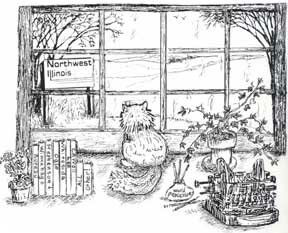
Discover rewarding casino experiences. 
|
“Mr. Secretary of War, Edward Stanton, seemed the most popular of the public men of the day, chiefly on account of his anti-slavery views. Indeed, in these northern States of the West, popular feeling appeared to me to be more genuinely Abolitionist than anywhere in the Union. There was little sentiment expressed about the Negro’s wrongs, but there is a strong feeling about the wrongs of the system and a disgrace to the country and still more there was a bitter hostility—almost an antipathy—to the slaveholder aristocracy of the South. Half measures, or patched up compromises found little favor with those plain, matter-of-fact Westerners. The slaveholders have made the Rebellion and they ought to pay for it. The North has been half-ruined by the South, and the South is rightly punished if she is ruined altogether. “Compensation to rebel is absurd and loyal men should not be called upon to pay for the property of rebels. If the South chooses to burn his cotton and produce a famine in his own territory so much the better. The more slave owners who are ruined, so much the better for the Union.” “Such was the purport of the sentiments I heard expressed; the form of expression was in general too emphatic to be repeated literally. Mr. McClellan with his supposed pro-slavery views was looked upon with disgust and spoken of even at that period with undisguised contempt. Lincoln, with his compensation scheme was thought not to be up to the mark; and the policy which pleased the village public the best was that of General David Hunter which gave a knockdown blow for once and for all to slavery and the slaveholders. “Still in this Western world of the north, it was only the rumor of War not the War itself that the traveler came across. The great tide of a civil war had not spread so far Northward. Illinois and Wisconsin regiments there were in the fight and plenty but the States themselves had been but little affected directly. According to the popular English view, the whole country is in a state of revolution; trade is bankrupt and the entire progress of the nation stopped for years to come; yet here in the West in the very heat of War there is a great country growing into existence by rapid strides. The great march of civilization was still as ever tending westward, building railroads, clearing forests, reclaiming wild lands, raising cities and making the wilderness into a fertile country. This progress westward across the prairie is the great fact of American history and those who want to understand the real character of the Civil War, must remember that this progress is still going on without ceasing. The growth of Lanark is one little incident in the history of the West and it is as such I have dwelt upon it. “It was near Lanark that I caught my first glimpse of the prairie. We have all laughed or by this time ceased laughing at the story of the Irishman who brought a brick home from the Pyramids to show his friends what the Pyramids were like. Yet I know not that the prairie could be described better to those who have never seen it than by bringing a spadeful of prairie sod and tell the spectators to multiply that sod by any multiple millions they choose to fix on. In truth there is nothing to describe about the prairie except for its vastness and that is indescribable. “I suppose most of us in our lifetime have dreamt they were wandering on a vast boundless moor seeking for something aimlessly and in this dreary search after weeks know not what as we wandered from slope to slope and still the moor stretched before us, endless and unbounded. Such a dream for my part I remember dreaming years ago and as I drove a mile-long drive across the prairies of Northern Illinois it seemed to me that the dream had come true at last “East, West, North, South—on the right hand and on the left—in front and behind, stretched the broken, woodless upland. Underneath the foot, a springy turf covered with scentless violets and wild prairie roses; overhead a bright cloudless sky whence the Sun shot down beams that would have scorched up the soil long ago but for the fresh prairie breeze blowing from across the Rocky Mountains; low grassy slopes on every side looking like waves of turf rising and falling gently. Not a tree to be seen even in the far distance; not a house in the far and near distance; not a drove of sheep or herd of cattle; not a sign of life except for the dun-colored prairie chickens whirring through the heather as we drove along—nothing but the broken woodless upland. So we passed on, coming from time to time upon some break in the monotony of the vast dreamlike solitude. Sometimes it was a prairie stream running clear as crystal between low, sedgy banks through which our horses waded knee deep and then again the woodless broken upland; sometimes there was a lone Irish shanty knocked up roughly with planks and logs wearing a look as if it had been built by shipwrecked settlers stranded on the shore of the prairie sea. Farther on we came across a herd of half wild horses who as we approached dashed off in a wild stampede; then upon a knot of trees whose seeds had been wafted from the distant forests and taken root kindly on the rich prairie soil, now upon an emigrant’s wagon, the women and children under a canvas awning and the red-shirted brigand-looking miners at its side, traveling across the prairie in search of the Land-o-Gold and then again the silent solitude and the broken, woodless upland. These scanty breaks, however, in the monotony of the scene were signs of the approach of civilization-warnings, as it were, that the days of the Lanark prairie were well-nigh numbered. The railroad in which my companions were interested were right in the heart of the district. To my English ideas the line looked like the famous railroad which went from nowhere in general to nowhere in particular. But America has amply proved that a railroad in the Far West creates its own constituency. In three or four years time the prairie over which I traveled will be enclosed, the rich soil will be turned up and bring forth endless crops of wheat till, a settler told me, the wild expanse will look at harvest-time like a golden carpet; and large towns may very likely be raised on the spot where Irish shanties stood when I passed. Every year when the traveler in search of the prairie has to go further and further West but its extent is so vast that generations, perhaps, centuries, must pass away before it becomes a matter of tradition. Settlers in the county tell one that it is necessary to live for some time upon the prairie land in order to feel its charm and that once its charm is felt all other scenery grows tame. It may be so I believe, without understanding it. There are people who grow to love the sea and grow to delight in seeing nothing but the wide expanse of the ocean around them for days and weeks and months together so, for some minds the endless sameness of the prairie may produce a strange attraction. For my own part the sense of boundless vastness hanging over the land was overpowering rather than impressive and I plead guilty to a feeling of relief when we got out of the open land into the tilled fields and green woods and cheerful villages which spread along the banks of the Mississippi River.” Edward Dicey’s 1862 account of the first months of Lanark’s formation with his description of the vast prairie lands around it ends here but continues to describe a trip up the Mississippi by steamboat which he found superior to those of the English types. He was awed; by the many bluffs along the riverside and is pleased to see the greenness of the landscapes and the quaint villages (and people) that line the river. His viewing the “frontier” just a hundred fifty years ago is such a positive bit of history of the first days of Lanark’s origins and makes us grateful, no end. This view looking northwest up Broad St., Lanark, from its corner with East Locust. The hotel is in the background with 2 few covered wagons at its front. This is probably in the late 1860’s. It is from a long ago issue of the Lanark Gazette and was printed in reverse. Richard Vieth, Mt. Carroll, straightened it out for us!! The hotel with some covered wagons in front is seen in background. It was property of the railroad company for about five years and only employees or passengers could use it. The railroad reached Savanna mid-July, 1862 with a dozen or so cars filled with people invited from “up the line.” The engine carried a swivel gun on the cowcatcher and was fired at every depot on the tracks. A committee of Iowans from Sabula also greeted the train, inviting from “one to one thousand” to dinner across the river to encourage investors to build rails on Westward. Their “impudence” shocked some! Those who stayed at Savanna’s banquet heard Senator Doolittle of Wisconsin make a melancholy speech about the rials finally reaching their objective. He could bring no joy to the occasion because he’d recently lost a son to disease at a Civil War camp. Six hundred laborers had pushed the tracks through from Lanark to Savanna from the autumn of 1861 to summer of 1862. Teams were hired locally for horsepower. H.G. Pierce wrote in August, 1862 that it was “twenty-one years since Savanna’s hope for a railroad to finally succeeded.
|




